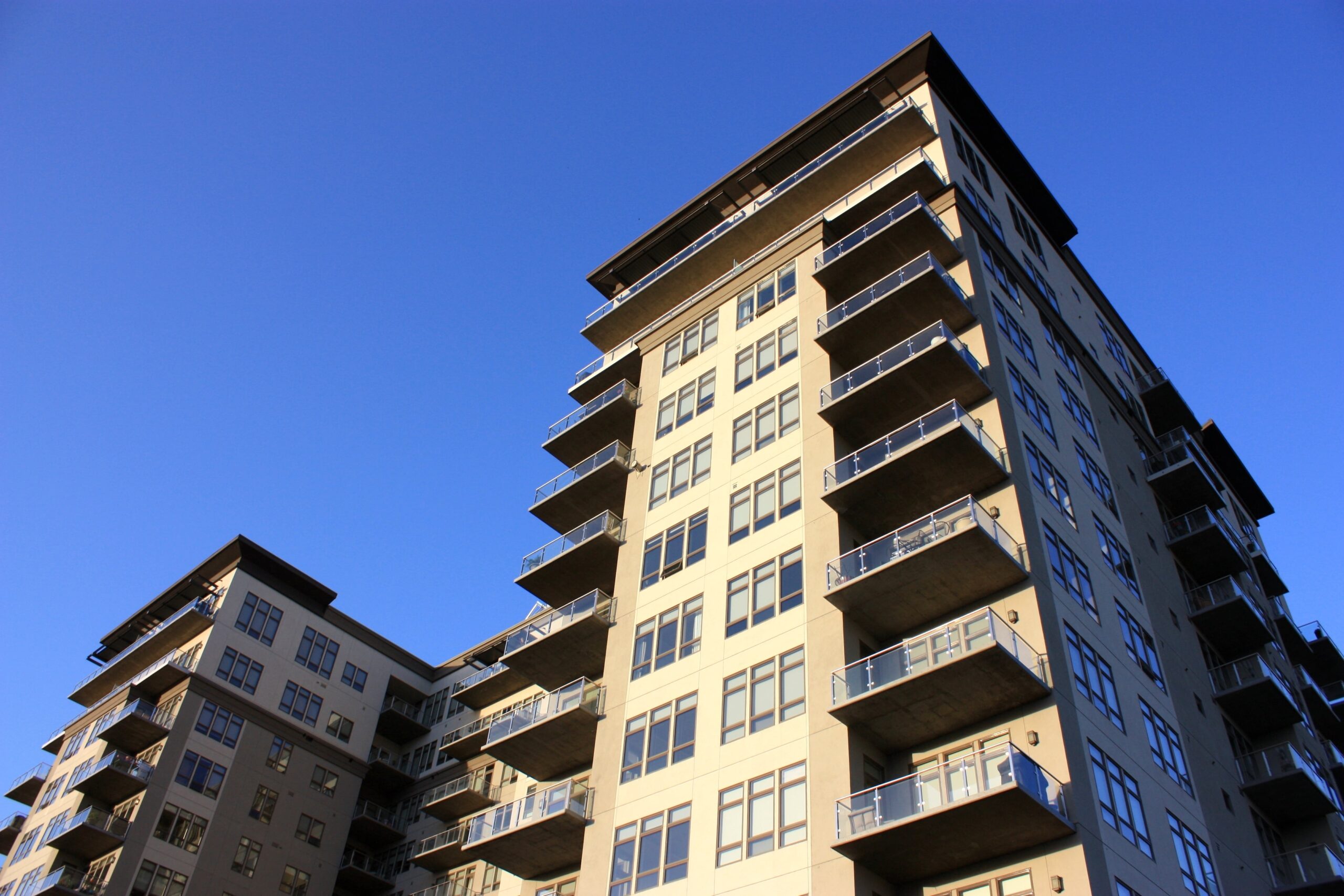
On January 8th 2024, New Jersey passed legislation that has some significant implications for certain residential buildings of condominium or cooperative ownership and planned real estate development associations in general. (S2760/A4384)
Inspection, evaluation, and maintenance of the structural integrity of residential buildings other than construction type 5 is now mandatory and subject to legally mandated procedures. You may at this point be asking, “Does this apply to the building(s) in my community?”, to which we would answer with the following questions:
- Is the building(s) in question a residential (containing two or more dwelling units) building of condominium or cooperative ownership as part of a common interest community?
- Does the building(s) in question have a primary structural frame and load-bearing exterior and/or interior walls of non-combustible (concrete, masonry, or steel) or heavy timber (wood structural members of at least 4” in least dimension) construction or include a podium structure of non-combustible or heavy timber construction that supports the remainder of the building?
If you answer “yes” to both of the above questions, then the legally mandated procedures apply to the building in question. Residential buildings consisting of rental dwellings (i.e., hotels, motels, rooming houses, etc.) or single-family dwellings (i.e., detached homes, duplexes, and townhouses falling under N.J.A.C. 5:23-3.23/International Residential Code), are not generally subject to structural integrity inspection, evaluation, and maintenance mandates of this legislation.
The primary requirement for such buildings is structural inspection and evaluation of these buildings following issuance of a certificate of occupancy, with the initial post-occupancy structural inspection to occur on the following schedule:
- If the certificate of occupancy was issued no later than January 7th of 2024 and no earlier than January 7th of 2009, then the structural inspection and evaluation of the building(s) in question is required within one (1) year of the fifteenth (15th) anniversary of the issuance of the certificate of occupancy.
- If the certificate of occupancy was issued prior to January 7th of 2009, then the structural inspection and evaluation of the building(s) in question is required by January 8th of 2026.
- If the certificate of occupancy was issued after January 7th of 2024, then the structural inspection and evaluation of the building(s) in question is required by the fifteenth (15th) anniversary of the issuance of the certificate of occupancy.
A determination of the schedule for the next structural inspection and evaluation of the building(s) is part of the written report issued by the structural inspector (note that a written report is mandated, and review of the previous report is required prior to undertaking of structural inspections after the first post-occupancy structural inspection – KEEP THE WRITTEN REPORT IN A PERMANENT FILE/ARCHIVE). In no case shall a second or later structural inspection and evaluation of the building be scheduled more than five (5) years after the initial post-occupancy inspection.
In addition, a structural inspection and evaluation is required within sixty (60) days after observable damage to the primary load bearing system occurs – if something strikes the exterior wall of the building and does more than break exterior cladding materials, fixtures, fittings, windows, or doors, or something happens that cracks, bends, or displaces one or columns, beams, girders, structural slabs, or the like, then a structural inspection and evaluation is mandatory.
In addition, all associations of planned real estate developments with $25,000 or more in total common area capital assets are required by the newly passed legislation to “undertake and fund a capital reserve study which shall determine or assess the adequacy of the association’s capital reserve funds”. Specific requirements include:
- Associations that have not undertaken a reserve study after January 8th, 2019, are required to undertake a reserve study before January 8th, 2025.
- Associations formed after January 8th of this year are required to undertake a reserve study as soon as practicable after (in no case more than two years following) the election of a majority of the executive board.
- An association’s reserve study is required to be reviewed and updated no less than quinquennially (every five years). The Falcon Group would note that the current CAI recommendation is for triennial (every third year) reserve study review and updating.
- An association’s reserve study is required to include a 30-year funding plan constructed so as to avoid special assessments or loans – special assessments and loans are not to be planned, but rather imposed when capital assets reach the end of their useful lives earlier than predicted by the reserve study. Reserve funds are to be used for planned replacements of an association’s capital assets.
- Associations existing prior to January 8th of this year that do not have an adequate reserve fund (i.e., is not predicted to avoid special assessments or loans following the currently in force 30-year funding plan) is required to increase its budget line item for reserve funding to render the reserve fund adequate within two (2) fiscal years, provided that such increase (without reference to any other budget item adjustments) does not require a common expense assessment increase of 10% or more, or within ten (10) fiscal years if necessary to prevent (without reference to any budget item adjustments besides the reserve fund) common expense assessment increases of more than 10% annually.
The legislation also includes various requirements pursuant to the transition of newly constructed planned real estate developments from developer to resident control and the conversion of pre-existing residential properties to condominium/cooperative ownership. Associations where these activities are occurring should consult their legal counsel for specifics.
CLICK HERE TO PROVIDE MORE INFORMATION & RECEIVE A FREE INITIAL CONSULTATION!









